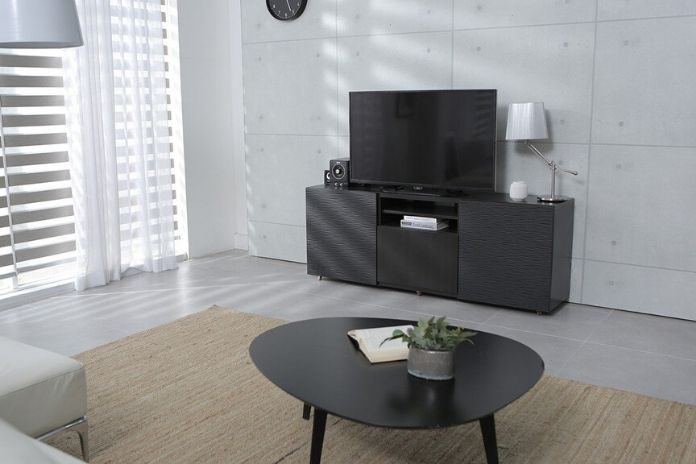
One of the most overlooked aspects when it comes to how we use electronic appliances is unplugging them when not in use. This frequently happens to televisions and any device related to entertainment. However, no matter if this happens intentionally or honestly by chance, leaving a few of our household appliances plugged is almost inevitable.
We all know that a good percentage of fires started from faulty electrical systems and appliances (mostly old ones) left connected with the outlets. Nonetheless, whether an appliance left plugged in is intensional or not, I think we have to be more responsible.
Is it bad to leave your TV plugged in all the time? No! In this case, plugging in electrical appliances like TVs and other devices, and then leaving them connected with a power source, is not a bad idea. However, it is always a good practice to unplug them when they are idle or not in use.
If you also think about it, from a safety perspective, it is advisable to be responsible and unplug a TV or any kind of appliance when not being used. Unplugging appliances, when not in use, is also practical because it can help save money or reduce electric bills.
By unplugging these electronic devices when they are notion use, you are avoiding the so-called “phantom electric use” where the device consumes power even when not turned on and just by being connected to a power outlet. It also keeps the device safe from current fluctuation that may damage the circuit boards.
Modern TVs today are manufactured to have built-in circuit protection features that keep them safe from current surges and fluctuations. This smart feature makes it ok to leave them plugged into power outlets when idle, but as I mentioned, it is good practice and beneficial to unplug them when not being used. So, to leave you a sure answer, it is NOT bad to leave TVs plugged in all the time.
If you are the type of person that also has the bad habit of leaving the TV plugged in, don’t worry. There’s nothing wrong with it, and it is not a terrible thing to do either. However, you might want to stick around for a bit cause I’ll be talking about the benefits of unplugging appliances and other related aspects. So, unplug your TV first and then read along!
Leaving Home Appliances Plugged In Costs a Lot of Money
Earlier I answered the question, is it bad to leave a TV connected to a power source all the time? And my answer was NO. It is true that leaving a television plugged into an outlet always isn’t that bad.
However, doing this and even with other appliances costs you a lot of money without noticing. As you know, you are paying for every single bit of energy or electricity you use at home, and every bit of energy consumed by devices when idle are considered as waste.
This means that you are paying for a lot of wasted energy on your monthly electric bill, and the sad thing about it is you don’t have any idea about it. Although you can say that the amount of energy going to waste is too small to notice, a lot of experts say that it is the exact point why a lot of people are losing money to it.
Come to think of it, regardless of how tiny wasted energy is monthly, summing them will still yield a large amount. Imagine computing it and start your computation ten years ago, for sure the amount will be astonishing, right? The monetary equivalent of it should have been your savings.
That is how this unnoticed wasted energy can cost you a lot. The culprit behind this is the so-called “Phantom Power” consumption.
The Effect of Phantom Power Draw by Electronics Left Unplugged
Also referred to as the phantom load, vampire power, or phantom energy, phantom power is defined as the energy or current drawn by electronic devices or appliances when they are switched off but left plugged into a power source.
According to relevant research, the phantom power drawn by an idle device at an average household accounts for 10% of the total power consumption.
In most cases, devices that consume a lot of phantom energy are the ones with remote controls, chargers, and laptops. This indicates that the amount of phantom power varies from one device to another.
To give you a better picture of how this costs you a good amount of money, I’ll give you a simple example.
Let’s say that you have two LED TVs always left unplugged, and each of them draws twelve watts as ghost loads. Both of them draw a total of twenty-four watts every day 24/7 for an entire year.
In this scenario, a watt is equal to a little less than nine kilowatt-hours (9 kWh) for one whole year. That will be a total of 8.76 kWh a year, due from this calculation 1W x 24 hours (1 day) x 365 days = 8,760 total Watt-hours for one year.
Now, let us see how much wattage the two LED TVs consume for one year, 24 x 8.76 = 210.24, that will be 210.24 kWh for one year. If the rate of electricity is 15 cents for 1 kWh, then the LED TVs will consume around $31.54 a year.
A $31.54 that should have been in your pocket if both TVs were not drawing phantom power. Imagine if you have a lot of electronic devices considered as ghost loads.
Common Energy-Related Bad Habits Leading to Higher Power Bill
Most of us discard this energy wastes that are virtually unnoticeable; however, if you take a closer look at my example about phantom power draw. It shows that no matter how small the wastes are, it will eventually lead to larger amounts when summed up.
To help you avoid wasting energy and paying for it, I took the liberty to list the most common bad habits that lead to losing a lot of energy.
1. Leaving Home Lights On
No household hasn’t experienced this one! I am sure that every family somehow had an issue of someone leaving without turning off the lights. This often happens to people that are always rushing, forgetting to turn off the lights as they leave.
Some of these cases happen during the day, where a family member is running late and rushing out of the house without turning the lights off. Lights that are running for hours can have a bit of impact on the power bill, but nonetheless, it is still a waste of energy.
2. Unintentional Leaving Appliances and Lights On
Falling asleep with the lights on or while watching TV is a classic deed that also happens to a lot of households. In cases like this, not only that the TV is left unplugged, leaving it on for hours is a practice that wastes a lot of energy, which also translates into money.
If this happens, the energy wasted is much larger than the phantom load. Appliances and lights left turned will contribute more wattage to the monthly total, which will drive it a lot higher. It’s another few bucks going to drain instead of your pocket.
3. Charging Gadgets and Forgetting About Them
Here’s another classic, I’m sure whether it’s intentional or not, you’ve charged your phone or other devices and forgot about it. If you can still remember, I mentioned earlier that some of the electronics that draw high phantom energy are the ones with chargers. If this frequently happens at your home, that only means that you are wasting a lot of energy.
I completely agree that the impact of these charging devices can be considered as minuscule and virtually close to zero, but the bottom line is that it is still a waste. No matter how much it will translate to money, say $2 a year, my point is that you still paid for it without having any use for it.
4. Leaving the Airconditioning On and Holding the Freezer Door Open
If you think the first habits or practices don’t have a significant impact, let me present the big guns. Freezers and air conditioning units are entirely powered by electric current, and they are usually directly connected to power outlets, making them abundant with energy or electricity.
That is why the all-time popular, standing in front of the opened freezer door while choosing what to cook and leaving the airconditioning on, tops in the art of wasting energy.
As we all know, opening the doors of the fridge and freezer adds to power consumption because it activates a lot of components. According to a researcher that testing various devices for power consumption, holding an opened freezer door for at least two minutes wastes a tiny bit of energy, actually.
However, if you think about it, how many times it is done daily? Perhaps that makes it a good and reliable contributor to the cause of wasting energy.
On the other hand, regardless of the type of airconditioning unit used in a household, the amount of energy it uses is large enough to be felt on the bill. Depending on the season, the tendency of using an airconditioning unit fluctuates, but still, the consumption does not decrease.
So, leaving the airconditioning on a room without any occupant can add up to a hundred dollars or more, depending on the season.
Final Thoughts
Going back to the question earlier, is it bad to leave your TV plugged in all the time? The answer is NO!
Leaving your TV plugged in all the time is not bad, especially the latest models, because all of them are built to have safety features to protect them from any kind of damage.
Modern models of TVs today are also designed to eliminate the risk of triggering electrical issues like fires and explosions.
However, by leaving your TV unplugged, you are giving way to phantom draw that makes you a victim of vampire load. This is the current drawn by electronic devices that are turned off but still plugged in.
It leads to wasting energy that unnoticeably forces you to pay for unused electricity that will costs you a lot in the long run.





